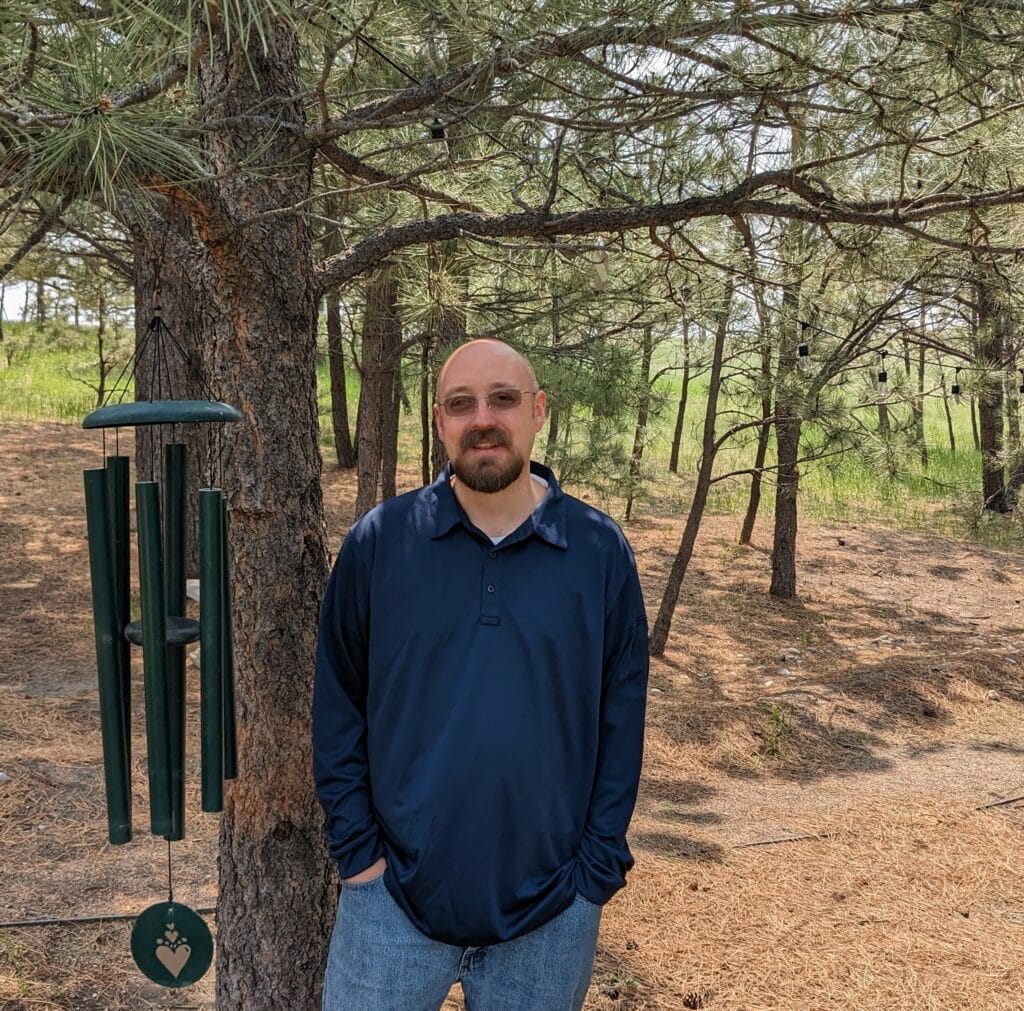- HOME
- WHAT WE TREAT
- TRAUMA
Trauma and Addiction Recovery for Men in Colorado
A Safe, Private Place to Heal From Trauma
Our team understands how trauma can affect every aspect of a man’s life—from relationships and emotional stability to substance use and mental health. That’s why we treat trauma and addiction together, using proven clinical approaches and personalized care in a supportive, all-male environment.
Request a Confidential Callback
Why Trauma Needs to Be Addressed
in Addiction Recovery
Trauma isn’t always easy to recognize—but its effects can be long-lasting. For many men, substance use becomes a coping mechanism for emotional pain that hasn’t been resolved.
What is trauma?
Trauma is the emotional and psychological impact of distressing events—such as childhood abuse, combat, sexual assault, neglect, or the loss of a loved one.
If left untreated, trauma often leads to anxiety, depression, and self-medicating behaviors like alcohol or drug misuse. That’s why addressing trauma is essential to breaking the cycle of addiction.
Our Trauma Therapy Approach for Men
At Healing Pines Recovery, we use a comprehensive, trauma-informed model that helps men confront, understand, and work through the roots of their pain. Every therapy is tailored to each client’s needs and comfort level.
Individual Trauma Therapy
- Evidence-based therapies like EMDR (Eye Movement Desensitization and Reprocessing), CBT, and DBT
- Licensed therapists with deep experience in trauma and addiction
- One-on-one sessions to process emotions in a safe space
→ Learn more about EMDR therapy for trauma and addiction
Group Therapy with Peers
- Small, all-male groups to foster openness and trust
- Peer support for shared experiences and growth
- Led by compassionate, trauma-informed facilitators
Holistic & Experiential Modalities
- Outdoor therapy, animal-assisted therapy, mindfulness, and meditation
- Helps men reconnect with their emotions and reduce nervous system reactivity
- Encourages personal breakthroughs in nature’s calming presence
Trauma refers to the emotional response following a profoundly upsetting incident. At the same time, addiction refers to a neuropsychological disorder prompting an individual to use drugs despite their adverse effects.
A person suffering from trauma or depression will exhibit the following symptoms:
A person can experience post-traumatic stress disorder, regardless of whether they underwent childhood trauma or incidents. People with post-traumatic stress frequently adopt unhealthy behaviors to cope with reality, trying to dull their emotions. They might be uncomfortable living around people and often retreat to secluded places.
Addiction is typically a symptom of an underlying neuropsychological challenge (substance use disorder) and is frequently at the core of all trauma. Many people feel that their addiction to drugs or alcohol makes it easier for them to numb the pain. They may feel their substance use makes it easier to forget painful experiences. However, drugs often make it worse for them, making them dependent on the substance.
Most people who have experienced traumatic events resort to alcohol and other drugs as the first option. They may do this regardless of whether they have suffered minor or severe trauma.
Some people may experience a lack of sleep or frequently wake up in the middle of the night. They have irregular sleeping patterns because of traumatic memories. While others experience extreme nightmares, this makes them spend the night doing other things and get anxious at bedtime.
Individuals suffering from trauma can experience flashbacks that disrupt their normal daily activities. These disturbing pictures constantly replay, and many people link the images they see with terrible memories or experiences.
Both physical and emotional flashbacks can be upsetting since the person feels as if they are reliving the memories. That’s why flashbacks cause physical and emotional damage.
Someone who has survived a traumatic event or has extreme substance addiction can feel undesirable emotions or shame. Being betrayed by a person they trust can also lead to painful heartbreaks and feelings of low self-esteem.
After traumatic experiences, most people may experience a lack of value. Post Traumatic Stress Disorder (PTSD) symptoms include feeling unworthy, invaluable, or mentally unwell. Statistics show that loneliness and a sense of hopelessness can cause suicidal thoughts in people with PTSD.
Typical responses to trauma include physical pain, anguish, and depression. Unfortunately, family members may not take trauma seriously, thus subjecting these individuals to silent suffering. Most of them endure the suffering from trauma and addiction as they’re in denial or ashamed to admit their conditions.
People with a history of trauma or drug abuse often experience panic attacks and anxiety. They might also exhibit the following symptoms:
- Complaining about their physical health
- Having trouble controlling their temper
- Showing signs of depression
- Having intrusive thoughts
- Having difficulty expressing their feelings
These people might sink further into substance abuse to enhance emotional management.
Chronic and repetitive trauma, including child abuse or domestic violence, mainly contributes to depression. Loss of safety and security can also lead to depression and anxiety, especially after an unexpected traumatic incident like a car accident or a natural disaster.
What Trauma Therapy Looks Like at Healing Pines
Our residential inpatient program in Colorado creates structure, consistency, and emotional safety for men to focus fully on recovery. During their stay, clients receive:
- Daily individual and group therapy sessions
- Holistic therapies that complement clinical care
- Personalized treatment plans and progress tracking
- Access to fitness, nutrition support, and therapeutic recreation
We limit our admissions to ensure each man gets the attention, support, and space he deserves to heal deeply.
The Link Between Trauma and Addiction
Is trauma related to substance abuse?
Yes—many men use alcohol or drugs to numb painful memories or escape emotional distress. Without trauma therapy, the root cause of addiction is left untreated.
This is especially true for men who’ve experienced:
- Childhood emotional or physical abuse
- Sexual trauma
- PTSD from military or first responder work
- Loss, grief, or abandonment
- Long-term emotional neglect
Healing from addiction means healing from the trauma that fuels it.
Trauma therapy helps individuals safely explore and process painful experiences to reduce emotional distress and regain a sense of control.
Yes. At Healing Pines, we treat trauma and addiction together so men can heal both the symptoms and the source of their substance use.
Healing Pines Recovery is located just outside Colorado Springs and Denver. We welcome men from across Colorado and the U.S. seeking high-quality, trauma-informed addiction care.
We treat PTSD, childhood trauma, combat trauma, sexual trauma, grief-related trauma, and more. Every treatment plan is individualized.
We’re a private, men’s-only rehab offering one-on-one attention, dual diagnosis treatment, and holistic support in a serene, nature-based setting.

Supporting a Loved One Through Trauma Recovery
You don’t have to carry this burden alone. Whether you’re just starting to explore treatment or ready to make a decision, we’re here to support you.
We work closely with families and loved ones to ensure a compassionate admissions process, regular communication, and peace of mind. Our team is ready to answer your questions, walk you through insurance verification, and help you determine next steps.
“Healing begins the moment someone feels seen, safe, and supported.”
Start Healing From Trauma—Today
If your loved one is ready to take the next step toward healing, we’re here to walk that path with you. Contact us now to speak with an admissions specialist who understands what you’re going through.
💬 Or schedule a private tour of our facility
Let’s talk about how trauma therapy at Healing Pines Recovery can help your loved one finally feel whole again.
Don't Let Anything Stop You From Getting Help.
We work with most major commercial insurance plans which can help cover up to 100% of the costs associated with treatment.
Trauma Therapy in Colorado Springs
We understand it’s challenging to express thoughts, feelings, and emotions associated with traumatic events, even during therapy. Our Colorado drug rehab has an approach that is customized to make it easier for our patients to express themselves.
When people arrive at Healing Pines Recovery, patients will go through a boutique-style recovery center with an individualized experience. Our program cares for people seeking treatment for the first time and those who have tried but failed to get help from other centers.
We aim to help them develop recovery goals and engage in healthy activities. The program is designed to keep them busy, enhance their recovery, and eliminate negative thoughts. Individuals can engage in mountain bike riding, walking, basketball, and disc golfing. Our center also creates an ideal personalized setting for trauma and addiction recovery.
The leadership and staff were committed to my success.
Paul is a man of integrity which flows through his team. I have been to other recovery programs and HPR stands far above them all. The small group structure offers a more intimate and personalized experience. This was so much more beneficial to my recovery than facilities preaching a "one-size-fits-all" solution to larger and fragmented groups. It was like having personal and knowledgeable therapists dedicated to me for a full month! They went out of their way to understand the root of my challenges and construct a path for improvement that is unique and relatable to me. This was a huge benefit!
Jay C
It saved my life, in every sense.
I spent a month at Healing Pines Recovery. The actual location itself is unreal. A beautiful cabin lodge, with gorgeous scenery. The rooms are large, queen beds, very comfortable! Great bathrooms with great showers! There is a pool table, slam jam, (Christine! 😉 frisbee golf, and daily access to a nearby gym. The property also has a pickle ball court that was used daily, Zoey the counselor beat us men constantly!
Clay M
My experience with Healing Pines Recovery has been wonderful.
My husband was their client, and they helped him be able to help himself. He is doing amazing! I think the combination of counseling, physical labor, meditation, AA, and just the beauty of the place itself all had a very positive impact on him. They really cared about him, and that did not stop just because he came home. Also they have counseling for the families and it has really helped me a lot. Heather is awesome! I thank God that we had them in our lives when we were most vulnerable.
Susan M
We wanted to share our gratitude to the staff.
Our son was under the care of Healing Pines recently and we wanted to share our gratitude to the staff. There were many challenges in his pursuing treatment, and thankfully Paul and Heather C helped us navigate all of them skillfully with patience and compassion.
Jim E
You'll get your life back!
Healing Pines Recovery is/was instrumental in setting me up for long term success in my recovery journey. I've been to treatment centers in the past and HPR is nothing like anything I've attended before. They're very small, intimate, and hands-on approach to recovery was exactly what I was looking for when seeking treatment. I knew that a large, one size fits all program like those offered by many other treatment centers in Colorado wouldn't provide me with the help I desperately needed. Paul and his Team are incredible and I would highly recommend HPR to anyone who needs help starting their recovery journey. Big shout out to James for all of his guidance during my time at HPR. His grace, knowledge, understanding, and direction were/are key to my continued success in recovery. One HUGE piece of the puzzle I love is the after care I've received from HPR... I am in constant contact with Paul, James, and many other staff members through the their alumni programs and it has helped me so much with life after HPR. This program was truly a miracle in my life and I know it will be for many other men struggling with addiction and/or alcoholism. You'll get your life back!
Nicholas P
This is truly a great recovery facility.
My learning experience here was something I’ll take with me throughout my whole life. The staff here will always be a part of my family and I am beyond thankful for everything they have done and continue to do for my well-being.
Gunnar P
I can't speak more highly of Healing Pines Recovery & Addiction Center.
It is located in a beautiful Colorado location with lots of outdoor activities and fresh air. They have a very knowledgeable and professional staff that goes above and beyond to meet your needs.
Riley K
I couldn’t have been at a more amazing place to begin this journey.
Seriously an amazing place. Everything from how beautiful the house and the property it sits on down to every person staffed there was nothing less than perfect. More than highly recommended in every sense. If you’re reading this and trying to find the right place for treatment and recovery I would absolutely look no further. Everyone’s recovery is different and we all need a comfortable place with people we can trust through this battle, healing pines understood that everyone’s path is different and they 100% cater to that. I couldn’t have been any luckier with finding Healing Pines. I won’t go any deeper and start to thank everyone there individually, But I want to express my gratitude to everyone on the HEALING PINES TEAM. Without you all, my path in sobriety would not look anywhere near the way it looks today. Seriously from the bottom of my heart thank you!
James M
Healing Trauma and Addiction
Our professionals engage with individuals through Evidence-Based Therapies (EBT) and Medical Assisted Treatment (MAT) options. If an individual has a history of trauma, we take them through EBT options such as Eye Movement Desensitization & Reprocessing (EMDR). This is to help people with trauma balance facts and emotions. We also give them Cognitive Behavioral Therapy (CBT) to influence their addiction problems through behavioral steering change.
For individuals experiencing painful withdrawal symptoms, we offer them the MAT option. In this option, we focus on quality recovery. We also provide medications backed up by intense research and FDA approval. Some medicines we utilize help our patients fight against opioids, alcohol, and antidepressants.
What To Expect
Our trauma therapy in Colorado Springs has a team of psychiatrists who’re not affiliated with any providers. These professionals are on standby and waiting to respond to raising matters and help individuals with health complications. They’re available to see anyone 24 hours a day for emergency assistance.
This contributes to the development of a continuous recovery environment. We also have transport services to help individuals quickly navigate home to the hospital. Overall, individuals should expect a certified psychiatrist to conduct their psychiatric treatments.
Don’t let trauma and addiction control loved ones. Seek services that help in recovery and give complementary mental health therapies.
Visit our drug rehab for men today to learn how we can help you accelerate your recovery process.
Schedule a Tour Today
Come discover why Healing Pines Recovery is your top choice for a trauma therapy center in Colorado.
Begin Your Journey & Escape Addiction
The first step can be the hardest. Fill out the form or call us at (720) 575-2621. You will be connected with a Healing Pines Recovery specialist who can answer your questions and help you get started.
Let Us Help You
Speak to Someone Right Now






